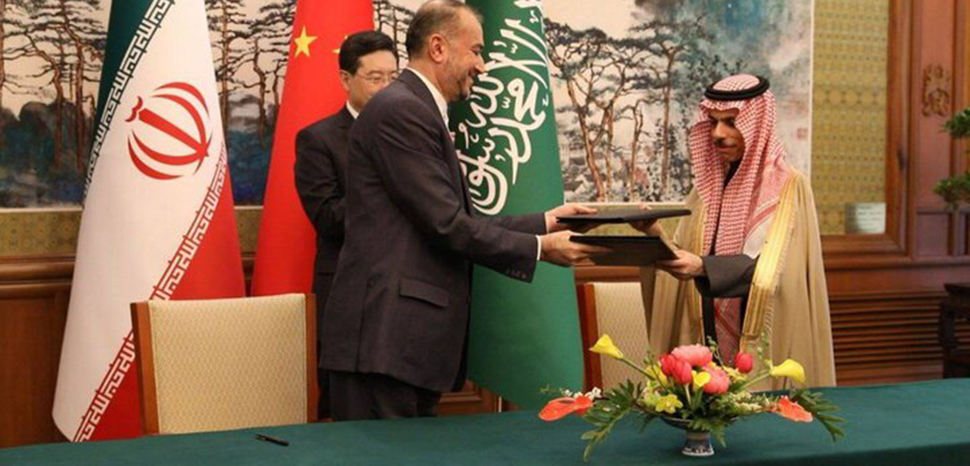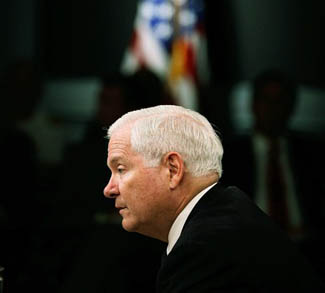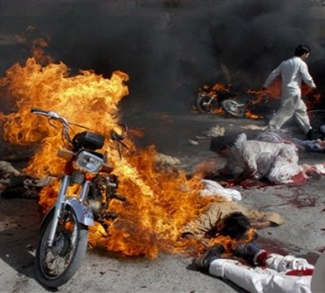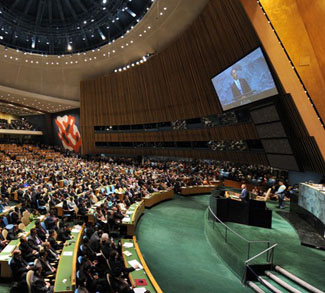Regardless of the overlapping of terms, whether the region in question is called West Asia or the Middle East, we can say that West Asia is a region that can be defined as an area where states believe they have a particularly close set of relations due to history, culture, and geography. It consists of the states of the Arab League plus Iran and Egypt, with some states belonging to more than one region.
As for Israel, although it belongs to the West Asian region and part of the Middle East geographically, it is closer to Europe politically and culturally; it has connections to European countries and takes part in European events.
“West Asia” enjoys an important geostrategic location, linking East and West by land and sea, includes the most important international waterways, and holds an economic and political weight in the world.
It has remained at the heart of global security concerns throughout the last decades and has multiple disputes, often with significant involvement from outside powers. Since 2010, at least 7 countries in the region used military force in combat on their own territory, and 11 used it on the territory of other countries.
West Asia is the only region of the world that does not have an inclusive regional security system. Attempts to create such a system have always foundered on the region’s myriad tensions and complexities. For that, the issue of security and stability in the region constitutes an urgent and critical question in one of the most turbulent regions in the world, where chaos enhances the security dilemma, due to the complex relations among regional powers, external intervention, and lack of trust between the political players.
The question then is whether the dramatic events that have occurred in the region in the past few years made the current moment ripe, at least, for beginning a process of establishing a comprehensive security system. Much has changed since the so-called Arab Spring outbreak, the emergence of terrorism and other new forms of religious extremist groups, and the perception that America is not so fully committed to regional stability as it was in the past, along with the rise of China and Russia as competing powers in the area.
Under these circumstances, one might ask about the necessary steps to start establishing a comprehensive and cooperative regional security system. In fact, it is hard to believe that a regional security system can be formed easily and quickly because in all cases there will remain disagreements that cannot be fully agreed upon, and many disputes will appear when taking the initial steps to setting up such a system.
Nevertheless, I can say that setting up a comprehensive and sustainable security system to achieve the highest level of stability and cooperation is possible if there is political will. I believe political will and popular desire to achieve this is looming on the horizon. In addition, some historical precedents, such as ASEAN, OSCE, GCC, and others, in the world have played significant roles in helping to manage and end conflicts and promote regional stability.
To achieve this goal, it is necessary to recognize that some issues cannot be resolved immediately and that cooperation is possible in some areas, while others require ongoing dialogue. International transformations, the emergence of new powers in Asia and Eurasia, the struggle over energy, influence and power, geopolitical polarization, and the fight against terrorism prompted the governments of the region to reconsider their traditional positions and policies at the internal, regional and international levels and think differently from the past, albeit in a relative way.
This new thinking leads to directing government policies towards comprehensive economic, cultural, and social reform as well as political openness and cooperation, which will contribute to ending the state of hostility and rebuilding trust to enhance security and stability in the region. It becomes very clear that there are important developments taking place that may stimulate balance and stability within the region, especially after the relative shrinkage of the role of the United States internationally and regionally.
These developments will form a new geopolitical situation in two aspects: First, by changing the role of regional and international actors, and second, by changing the nature of security threats. With regard to the changing role of actors at the regional level, regional crises will bring about new geopolitical changes in two ways: the interdependence of political developments in the countries of the region and a shift in the traditional role, influence and interests of regional and transregional actors.
The United States was not unmindful of such developments, so it made great efforts to prevent or contain these positions. At the same time, it worked hard to establish a security and political system compatible with its interests in the region, with the participation of Israel. The Saudi-Iranian rapprochement had adjusted the sails in another direction, despite the initial approval of the US proposal by some in the region.
The process of developing new options in the region has begun in a way that guarantees the interests of its people, including some who have begun a broad process of normalization with Israel. They do not have any objection to dealing with Israel as part of the regional geopolitics and establishing diplomatic relations with it if the peace process and negotiations resumed and the Palestinian state was established on the basis of the two-state solution and the Arab peace initiative.
All governments of the region have put the interests of their people and economic development as a strategic option and have begun to call for a new approach in cooperation, rather than competition and struggle for influence. There is also an official and popular conviction that no one wants war or hostility that would deprive the region of sustainable development for decades and contribute to the destruction of some of its states. Chinese intervention, the reconciliations between the states of the Middle East, the outbreak of the Russian-Ukrainian war, and the global food crisis have helped in this.
In this atmosphere, the signing of the Iranian-Saudi agreement, under Chinese auspices, came to restore diplomatic relations, move forward toward cooperation and resolve differences through peaceful means and negotiations. The competing regional agendas of Riyadh and Tehran have compounded wars in Yemen and Syria and continue to fuel instability in Lebanon and Iraq. Reducing the intensity of regional competition will help redirect political energy to the core internal conflicts and enhance security in the region.
The Saudi-Iranian agreement provided a roadmap for re-establishing diplomatic ties, helped lessen tensions in the broader Gulf region, and could also help open the door to a security dialogue between the Gulf Arab states, Iran, and Iraq. The Gulf Arab states had previously been reticent about expanding their engagement with Tehran, which needed to first mend ties with Riyadh, so in that sense, the deal opens the door to wider discussions. Such a dialogue could be a venue for states to discuss and develop ways to address their primary security concerns, particularly in the Gulf itself.
It is true that the challenge will be difficult for both Iran and Saudi Arabia, but the implications of the agreement, positive or negative, will affect all countries interested in the fate of the region. I believe that there is a political will as well as a common and strong desire from officials and the public for the success of this long-awaited approach. Positive signs have begun to appear in the areas of influence and conflict between the different poles of power in the Gulf, Syria, Iraq, Lebanon, and Yemen. Hostile statements in the media also have decreased significantly and completely disappeared from the officials’ statements.
Saudi Arabia and the GCC states, supported by Arab and other regional powers, refused to participate in a military alliance against Iran despite the American and Israeli pressure to do so. What is more, all OPEC member states adhered to the OPEC Plus decision to cut production, more than once, to protect their interests, despite the outrage of the United States.
Syria also regained its membership in the Arab League and restored diplomatic relations with the Arab governments, in spite of the outrage of the United States. This was preceded by a reconciliation between Turkey and Saudi Arabia, Egypt and the United Arab Emirates, and Iran and Egypt’s ongoing talks to restore diplomatic ties. Saudi Arabia and Iran have started talks, exchanging high-level officials’ visits for pacification and cooperation.
In addition, the region’s governments refused to join the Western military alliance against Russia, despite Western and American pressure, with some declaring neutrality while others expressing willingness to mediate between the two parties.
To enhance this approach, strategic relations with other actors, such as Russia, China, India, and Pakistan, have been strengthened in all fields—politics, security, defense, economy, technology, space, and nuclear energy. There are aspirations for cooperation with the BRICS group and the Shanghai Organization. Some have become involved in these blocs; others are about to start a dialogue for a strategic partnership. Egypt, the UAE, Kuwait, Bahrain, and Qatar have joined the Shanghai Organization as “dialogue partners”.
During the Arab-Chinese Business Conference, which was held in the Saudi capital, Riyadh, last June, the Saudi side announced a strategic partnership under the name of the “Modern and New Silk Road” to link China with the region and enhance cooperation between the Chinese and Arab-Islamic civilizations in order to achieve Saudi Arabia’s Vision 2030 and the Chinese Belt and Road Initiative. The region is still facing various challenges and threats of terrorism, maritime piracy, drugs, human trafficking, smuggling of migrants, and others. To face these dangers, it was agreed to enhance cooperation in the field of combating terrorism, extremism, sectarianism, and renunciation of violence. Several agreements in this regard were signed in recent years.
An intense dialogue is taking place today to “establish a special maritime security system” that is in parallel with the international coalition led by the United States under the command of the US Fifth Fleet. The vision is based on economic and security interests in the sea lanes in the Gulf, the Gulf of Aden, the Red Sea, and the Indian Ocean since a large share of regional and international trade passes through these waterways.
In conclusion, it can be said that the geopolitics of the West Asian region will not remain the same, and the fundamental security problems of the region cannot be ignored at the initial stages of discussions. Significant differences over fundamental issues should not hinder an inclusive dialogue on cooperative regional security, at least at the beginning. Those who step forward to begin should not be so daunted as to be paralyzed into never taking the initiative. Previous experiences have shown that patience, flexibility, creativity, and perseverance can lead to significant results. The peoples of West Asia deserve a comprehensive and sustainable security system. This region is the only one in the world without a legitimate, effective, inclusive, and multilateral security organization.
Enhancing relations with influential world powers, such as Russia, China, India, Pakistan, South Africa, and Brazil, will not be a substitute for the region’s traditional historical relations with the United States and Europe, at least in the next two decades, but it will be parallel to them. Strategic and practical plans have been launched in cooperation with the United Nations to combat terrorism, which is still operating in Asia and Africa, in addition to declaring war on all forms of new threats and challenges as well as the danger of piracy in the waterways.
It is known that managing the balance between conflicting interests will constitute a difficult diplomatic and political challenge for all. But it is necessary to rebuild trust, promote principles of good neighborliness and coexistence, reject sectarianism and violence, and resolve differences through peaceful means and negotiations. It became clear to the people that force does not achieve security, peace or prosperity but spreads destruction, sectarianism, extremism, terrorism, and crime.
For this to succeed, it is necessary to establish an informal network that brings together civil society organizations, experts, research centers, academics, think tanks and others to support the official and governmental directions, as the most effective way to launch and establish a comprehensive regional security dialogue, assuming there is sufficient support from potential official stakeholders. Building a new regional security structure requires building a common long-term vision and a set of reliable guarantees, based on previous experiences in Africa, Asia and Latin America, with the aim of reducing tensions, resolving conflicts, managing crises and preventing conflicts, regardless of the contradictory record of these organizations.
Ambassador Adel Adaileh is an expert at the Conference on Interaction and Confidence Building Measures in Asia (CICA) specializing in new challenges and threats. The article expresses the personal views of the author and is not binding on the CICA Secretariat or any other party.
The views expressed in this article belong to the authors alone and do not necessarily reflect those of Geopoliticalmonitor.com.




